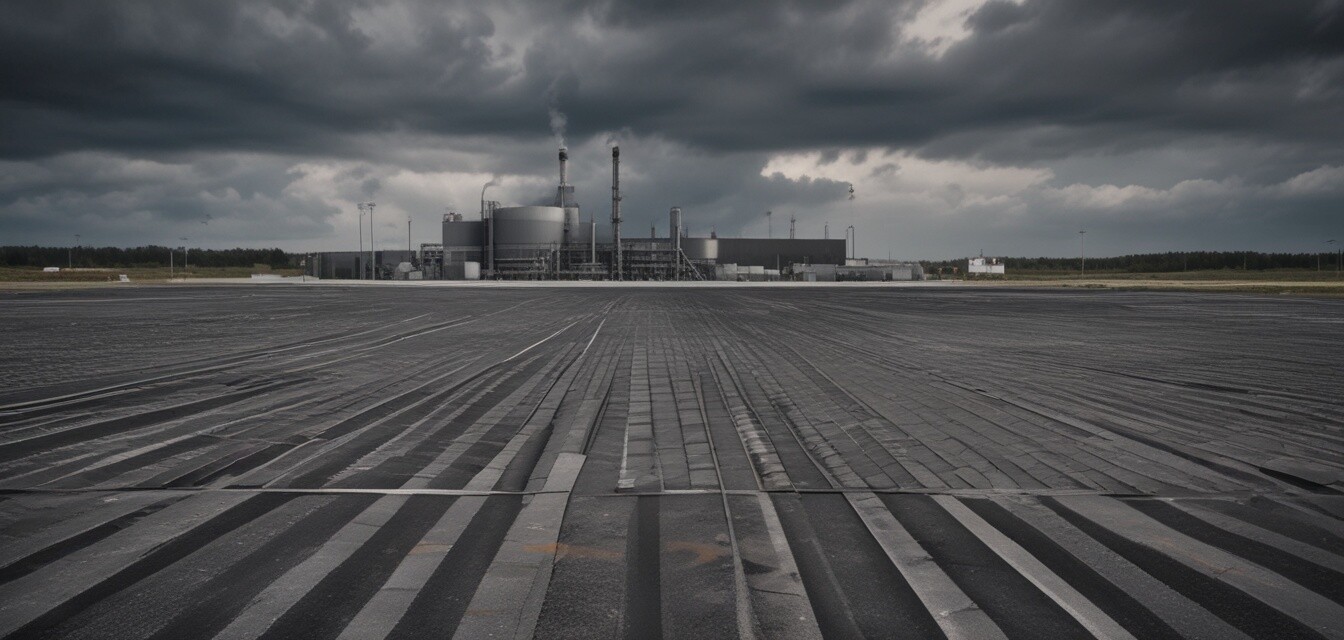
How climate change is shaping asphalt production
Key Takeaways
- Climate change is influencing the asphalt industry, altering production methods and material efficiency.
- Eco-friendly materials are gaining traction as manufacturers work towards sustainable practices.
- Adaptation to extreme weather conditions is necessary to maintain asphalt quality.
- Monitoring technology plays a pivotal role in optimizing production processes amidst climate change.
- Regulatory frameworks are evolving to incorporate environmental considerations in asphalt production.
As the world grapples with the effects of climate change, industries are adapting, and the asphalt production sector is no exception. Understanding how climate change affects the production of asphalt can help contractors and DIY enthusiasts alike make informed choices about materials and methods. This article will explore the various ways climate change is impacting asphalt production.
The impact of climate change on asphalt production
Climate change influences multiple aspects of asphalt production. From raw material sourcing to production efficiency, manufacturers are compelled to innovate and adapt. Here are the key areas affected:
1. Raw material sourcing
Changes in climate can affect the availability and quality of raw materials used in asphalt production, including:
- Increased temperatures impacting the properties of petroleum products.
- Severe weather events disrupting supply chains.
2. Production methods
Asphalt manufacturers are evolving their production techniques to mitigate the environmental impacts brought on by climate change:
- Adoption of warm-mix asphalt technologies to reduce energy consumption.
- Implementation of recycling processes to decrease the need for new materials.
3. Quality and durability
Extreme weather patterns necessitate changes in the formulations of asphalt to ensure longevity and resilience:
- Increased flexibility to withstand temperature fluctuations.
- Enhanced resistance to water damage due to heavier rainfall.
4. Regulatory considerations
Governments are introducing stricter regulations that drive the industry toward sustainable practices:
- Incentives for using recycled materials.
- Restrictions on emissions during production processes.
Innovative materials in asphalt production
To adapt to the challenges posed by climate change, the asphalt industry is exploring innovative materials:
| Material | Description | Benefits |
|---|---|---|
| Reclaimed Asphalt Pavement (RAP) | Recycled asphalt used in new pavements. | Reduces waste and preserves resources. |
| Warm-mix asphalt | Asphalt produced at lower temperatures. | Decreases energy use and emissions. |
| Polymer-modified asphalt | Asphalt enhanced with polymers for better performance. | Increases flexibility and resistance to cracking. |
Monitoring technology and climate adaptation
Advancements in technology play a critical role in adapting to climate challenges:
- Use of sensors to monitor material temperature and quality.
- Predictive analytics to anticipate weather patterns that affect production.
- Data-driven approaches to optimize the scheduling of production cycles.
Conclusion
Asphalt production is on the brink of transformation due to climate change. The industry's ability to evolve in response to these challenges will dictate its future resilience and efficiency. With the continued integration of eco-friendly materials and innovative practices, the asphalt industry is positioning itself for sustainable growth in changing environmental conditions. For further understanding of the asphalt paving landscape, explore our extensive coverage on asphalt mixes and additives, buying guides, and paving tools.
Pros
- Implementation of sustainable practices.
- Reduction in environmental impact.
- Innovative materials enhance performance.
Cons
- Higher upfront costs for eco-friendly materials.
- Need for training on new production techniques.
Learn more
Stay updated on the latest developments in asphalt technology and trends by visiting our News and Trends section.

